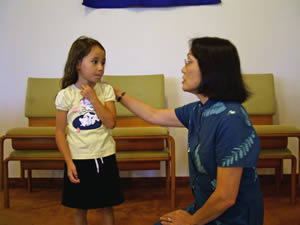Understanding Addiction in Your ‘Ohana
 Parents who abuse drugs and alcohol aren’t always able to do what is right for their keiki. As kupuna, it often comes to you to help out by teaching the keiki what is right. They often won’t know or understand why mom or dad can’t be around, and they may feel abandoned and unloved. You might be feeling hurt as well. Although this situation might feel hopeless, there are many positive things you can do to improve the situation.
Parents who abuse drugs and alcohol aren’t always able to do what is right for their keiki. As kupuna, it often comes to you to help out by teaching the keiki what is right. They often won’t know or understand why mom or dad can’t be around, and they may feel abandoned and unloved. You might be feeling hurt as well. Although this situation might feel hopeless, there are many positive things you can do to improve the situation.
It’s Not Your Fault
The first thing to remember is that it’s not your fault. Nobody causes addiction – it is a disease. Although you can’t cure someone of an addiction yourself, you CAN help them get treatment.What Can You Do?
 When keiki suffer because of someone’s addiction, the first step is to let them know that they are loved and needed. Explain addiction to them. Tell them why this sickness makes people act badly. Be honest and open about what is happening. It’s not easy, but it doesn’t help to shield your keiki from the truth.
When keiki suffer because of someone’s addiction, the first step is to let them know that they are loved and needed. Explain addiction to them. Tell them why this sickness makes people act badly. Be honest and open about what is happening. It’s not easy, but it doesn’t help to shield your keiki from the truth.
When to Talk
Keiki are smart and can start learning about good habits as young as three years old. It is important to start discussing good choices as soon as possible. Be prepared to talk about addiction whenever the topic comes up – while watching TV, eating dinner, or taking a walk. Don’t let the moment pass.Talking to Pre-Schoolers
It is easiest to teach young children by modeling good habits. If you have to give them medicine, remind them that medicine is only for when they are sick and that they should never take medicine from a stranger.- Teach them to develop healthy habits now so they can say “No” to bad habits later.
- Allow them to solve small everyday problems to develop their confidence.
Talking to School-Age Keiki
School-age keiki can understand basic facts about drugs.- Teach them the difference between medicine and drugs.
- Tell them the rules about drug and alcohol use in the house.
- Encourage them to talk and express their feelings. If they can express their feelings, they won’t need to dull those feelings later with drugs and alcohol.
Talking with Teens
Teenagers may know how drugs and alcohol can hurt families and people.- Explain to teens how addiction may be influenced by family history.
- Tell them that experimentation isn’t allowed and can’t be afforded!
